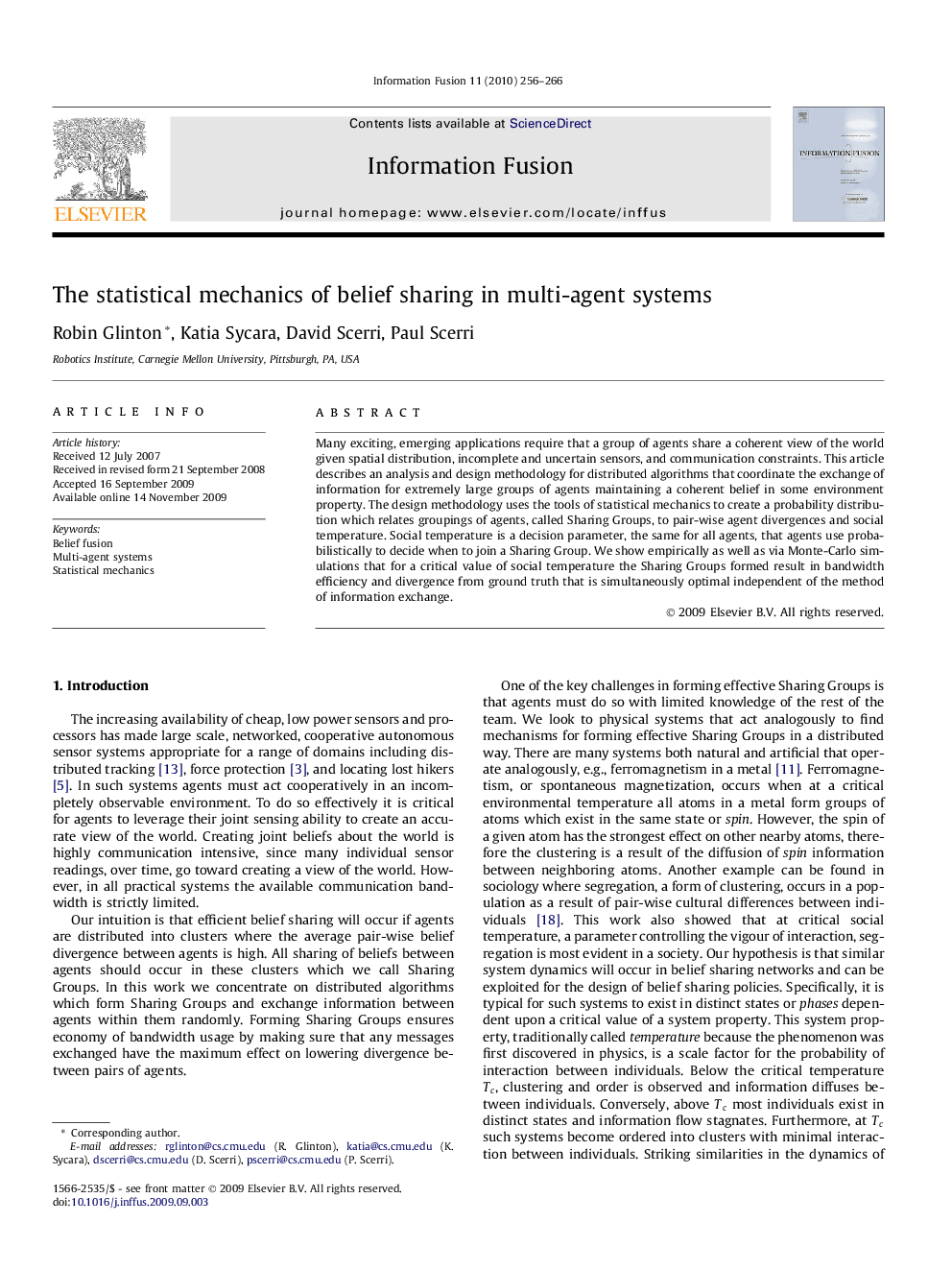| Article ID | Journal | Published Year | Pages | File Type |
|---|---|---|---|---|
| 528870 | Information Fusion | 2010 | 11 Pages |
Many exciting, emerging applications require that a group of agents share a coherent view of the world given spatial distribution, incomplete and uncertain sensors, and communication constraints. This article describes an analysis and design methodology for distributed algorithms that coordinate the exchange of information for extremely large groups of agents maintaining a coherent belief in some environment property. The design methodology uses the tools of statistical mechanics to create a probability distribution which relates groupings of agents, called Sharing Groups, to pair-wise agent divergences and social temperature. Social temperature is a decision parameter, the same for all agents, that agents use probabilistically to decide when to join a Sharing Group. We show empirically as well as via Monte-Carlo simulations that for a critical value of social temperature the Sharing Groups formed result in bandwidth efficiency and divergence from ground truth that is simultaneously optimal independent of the method of information exchange.
